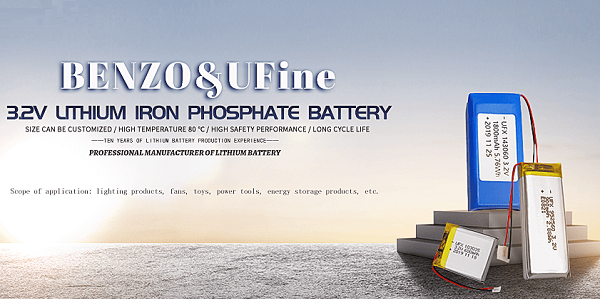Safety comparison of lithium cobaltate, lithium iron phosphate and polymer lithium batteries. Many customers have a lot of disputes about the safety performance of lithium batteries. Compared with lithium cobalt oxide batteries and polymer lithium batteries, the most obvious advantage of lithium iron phosphate batteries is the extremely high safety factor and support for fast charging (high current charging). And a wider operating temperature range.

From the current mainstream technology of lithium-ion batteries, there are mainly lithium cobalt oxide, lithium iron phosphate batteries and polymer lithium batteries. Their different materials and structural characteristics will affect the battery preparation technology and use, which will lead to The safety of coming is also different.
1. Lithium cobalt oxide battery: The safety of lithium cobalt oxide battery is poor and the cost is very high. It is mainly used for small and medium-sized batteries, widely used in notebook computers, mobile phones, MP3/4 and other small electronic equipment, with a nominal voltage of 3.7V.
The biggest feature of preparation is that after fully charged, there are still a large amount of lithium ions left in the positive electrode. In other words, the negative electrode cannot accommodate more lithium ions attached to the positive electrode, but in the overcharged state, the excess lithium ions on the positive electrode will still swim to the negative electrode, and metal will be formed on the negative electrode if it cannot be fully contained lithium, because this metallic lithium is a dendritic crystal, it is called a dendrite. Once the dendrite is formed, it will provide an opportunity to pierce the diaphragm, which will cause an internal short circuit.
Since the main component of the electrolyte is carbonate, it has a low boiling point, so it will burn or even explode at higher temperatures. It is easier to control the formation of lithium dendrites on small-capacity lithium batteries. Therefore, lithium cobalt oxide batteries are currently limited to small-capacity batteries such as portable electronic devices, and cannot be used for power batteries.
2. Polymer lithium battery: The actual available theoretical specific energy has been greatly improved. Compared with lithium cobalt oxide battery, it can better play the role of high capacity, but in terms of material, polymer lithium battery also uses cobalt lithium oxide and organic electrolytes, so it do not fundamentally solve the safety problem. From the perspective of use, if the battery is short-circuited, it will generate excessive current. The electrolyte of polymer lithium battery is colloidal, which is not easy to leak, which eliminates the possibility of leakage, but will cause more violent combustion. Therefore, spontaneous combustion is the biggest hidden danger of polymer lithium batteries.
The polymer lithium battery is structured with aluminum-plastic soft packaging, which is different from the metal shell of the liquid battery. Once a safety hazard occurs, the liquid battery is easy to explode, while the polymer battery will only swell at best.
3. Lithium iron phosphate battery: This is an ideal power battery that can be used for power tools and power cars. The theoretical capacity of lithium iron phosphate battery is 170mAh/g, and the actual capacity of the material is 160mAh/g. In terms of safety, the P-O bond in the lithium iron phosphate crystal is stable and difficult to decompose. Even at high temperature or overcharge, it will not collapse and heat like lithium cobalt oxide or form strong oxidizing substances, so it has good safety. The thermal peak of lithium iron phosphate battery can reach 350℃-500℃, while the lithium cobalt oxide battery is only around 200℃.
The safety performance of lithium iron phosphate battery is very good, and it is not prone to dangers such as combustion and explosion. Coupled with a reasonable structural design, its safety is further improved, so the battery will not burn or explode under impact, needle stick, short circuit, etc.
The safety of lithium batteries is one of the most concerned issues. The safety of the battery has a lot to do with the design and abuse conditions of the battery pack. For single cells, safety is not only related to the positive electrode material, but also to the negative electrode, separator, and electrolyte.
The above is the comparison of the safety of lithium cobaltate, lithium iron phosphate and polymer lithium batteries. Personally, the safety of lithium batteries needs to be studied from the four levels of battery cell, PACK, system, and functional safety. If the safety of lithium batteries cannot be fundamentally solved, sales in the market will certainly not be ideal.



